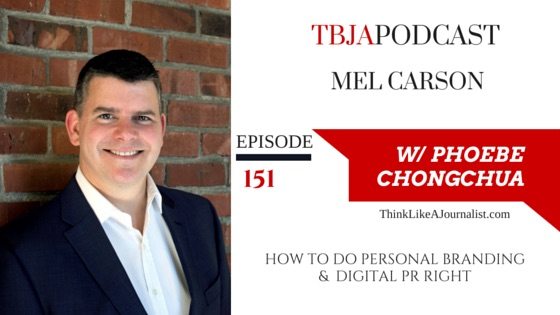How to make an excellent impression online and in person. This episode is about building your image with personal branding & digital PR the right way. Mel Carson shares insight on creating an image that’s noteworthy.
Mel Carson is founder of the Seattle-based consultancy , Delightful Communications, which helps businesses and individuals understand and successfully apply strategies that focus on Social Media, Digital PR and Personal Branding.
He also relishes his work as US Brand Ambassador for Majestic, evangelizing the largest publicly available link intelligence database & toolset on the planet to marketing, advertising and PR professionals all over America. Previously, Mel worked for 7 years as a Digital Marketing Evangelist at Microsoft Advertising.
He’s the co-author of the critically acclaimed: Pioneers of Digital and played the “Young Joe Cocker” in the rock legend’s 1997 music video “N’Oubliez Jamais” with France cinema icon, Catherine Deneuve!
(See video below).
Think Like A Journalist Quote
“PR is extremely important, and being able to use it in the right way means everything. You have to market your success.” – Lee Haney, bodybuilder and former Mr. Olympia
Career Highlight
Hear how Mel used his creative and diverse background (including acting) to help him start Delightful Communications.
When It Didn’t Work
Mel was trying to hire and build his business. When he outsourced tasks to companies,he found that the focus and concentration wasn’t there. He went through a series of hiring sprees but things weren’t working. To find out why, what was going wrong, and how to fix the problem and solve his hiring needs, he hired a full-time person.
How to build a great online image that conveys your personal brand and generates digital PR
Today it’s not enough to just be a successful brand with an image that is rock solid in the offline world but nowhere to be found in the online world.
Customers aren’t one dimensional. If they’re finding you in the “real world”, at some point they’re going to check you out online.
If you can’t be found online, some would say you’re irrelevant.
Sounds harsh but it’s often true.
Carson says reports have shown that only 15 percent of people believe what a brand says through advertising or marketing, but 90 percent believe or trust what a friend or family member says about a brand.
“Many brands are finding that empowering their teams and their individual workers’ personal brands helps create a more authentic and transparent halo effect around those individuals [so they] then become essential and trustworthy to the brand and to the brand’s customers,” says Carson.
He says personal branding should take into consideration everything you see and even what you don’t see—the “why” behind your career.
For instance, a headshot on LinkedIn should convey a professional personal brand.
The text in your LinkedIn profile should help people understand what your “professional purpose” is–why you get up in the morning and do what you do.
Carson says the professional purpose can also be used in your LinkedIn profile summary which he says is a critical field.
“The LinkedIn summary is hugely important for setting out your store for not just your experience but how people might find working with you, what your professional mission is but also filtering the right audience so that you’re actually targeting your personal brand for the right audience that you want to go for,” explains Carson.
An area of personal branding that often is overlooked and underutilized is competitive analysis and differentiation. Carson says companies neglect this aspect even though it’s a vital component of building a successful personal brand.
“[Companies are] so in the weeds of executing on the tactical part (the strategy) that they have very little chance, especially in the bigger companies, of sticking their head above the parapet and seeing what the competition are up to,” says Carson.
He recommends looking up the most impressive brands/people in your niche market and studying what makes them intriguing.
“What is it about their digital footprint or what they have to say or how they say it that resonates with you,” says Carson.
Then find some take-aways so you can do an even better job communicating the message.
Carson says the benefit of building your online image and reputation is that eventually people come to you for your thought leadership and expertise, making you an influencer.
To become an influencer, Carson says start by identifying those in your industry who already are and analyzing their profiles, and conversations.
He points out that this works very well if you’re looking for a job. It can help you learn how to “fit in” with the corporate culture of that particular company.
“At the end of the day, when it comes to your personal brand, you’re looking to be more discoverable, shareable, and memorable and those are the three tenets that we really aim for.”
Multimedia Resource
Office 365, OneNote
Book
Million Dollar Consulting, Alan Weiss
Contact
10 Steps To Perfect Strategy For Personal Branding
